
Thaba-Bosiu: The Sacred Mountain of Lesotho
Thaba-Bosiu National Monument is a place of great historical and cultural significance in Lesotho. Located about 24 kilometers east of Maseru, the capital city, this flat-topped mountain was once the stronghold of King Moshoeshoe I, the founder of the Basotho nation. The name 'Thaba-Bosiu' means 'Mountain at Night,' and it is said that the mountain appeared to grow taller at night, deterring enemies from attacking. Visitors to Thaba-Bosiu can explore the ruins of ancient villages, dwellings, and fortifications that date back to the 19th century. The site offers a glimpse into the rich history and heritage of the Basotho people. The panoramic views from the top of the mountain are breathtaking, providing a unique perspective on the surrounding landscapes. The Thaba-Bosiu Cultural Village at the base of the mountain offers additional insights into the traditions and customs of the Basotho. Here, you can learn about traditional crafts, music, and dance. Local guides are available to share stories and legends, making your visit both educational and enriching. A visit to Thaba-Bosiu is not just a journey into the past but also an opportunity to connect with the vibrant culture of Lesotho.
Local tips in Thaba-Bosiu National Monument
- Wear comfortable walking shoes as the terrain can be uneven.
- Hire a local guide to gain deeper insights into the history and legends of Thaba-Bosiu.
- Visit the Thaba-Bosiu Cultural Village for a richer cultural experience.
- Carry water and snacks, as there are limited facilities on the mountain.
- Check the weather forecast before your visit; the area can get windy and cool.
Thaba-Bosiu: The Sacred Mountain of Lesotho
Thaba-Bosiu National Monument is a place of great historical and cultural significance in Lesotho. Located about 24 kilometers east of Maseru, the capital city, this flat-topped mountain was once the stronghold of King Moshoeshoe I, the founder of the Basotho nation. The name 'Thaba-Bosiu' means 'Mountain at Night,' and it is said that the mountain appeared to grow taller at night, deterring enemies from attacking. Visitors to Thaba-Bosiu can explore the ruins of ancient villages, dwellings, and fortifications that date back to the 19th century. The site offers a glimpse into the rich history and heritage of the Basotho people. The panoramic views from the top of the mountain are breathtaking, providing a unique perspective on the surrounding landscapes. The Thaba-Bosiu Cultural Village at the base of the mountain offers additional insights into the traditions and customs of the Basotho. Here, you can learn about traditional crafts, music, and dance. Local guides are available to share stories and legends, making your visit both educational and enriching. A visit to Thaba-Bosiu is not just a journey into the past but also an opportunity to connect with the vibrant culture of Lesotho.
When is the best time to go to Thaba-Bosiu National Monument?
Iconic landmarks you can’t miss
Avani Lesotho Hotel & Casino
Discover luxury and excitement at Avani Lesotho Hotel & Casino, where stunning views meet exceptional service and thrilling entertainment options.
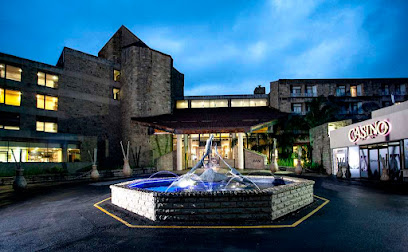
Thaba Bosiu Cultural Village
Explore the rich heritage and breathtaking landscapes of Thaba Bosiu Cultural Village, a cultural gem of the Basotho people in Lesotho.
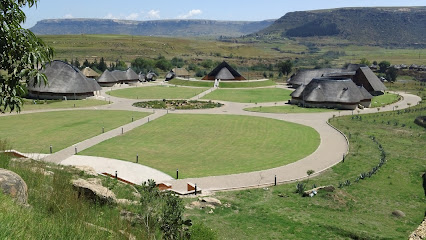
Botleng Guest House
Discover the comfort of Botleng Guest House, where warm hospitality meets the beauty of Lesotho's landscapes.

Basotho Hat
Explore the vibrant Basotho Hat market in Maseru for authentic crafts and cultural souvenirs that reflect the rich heritage of Lesotho.
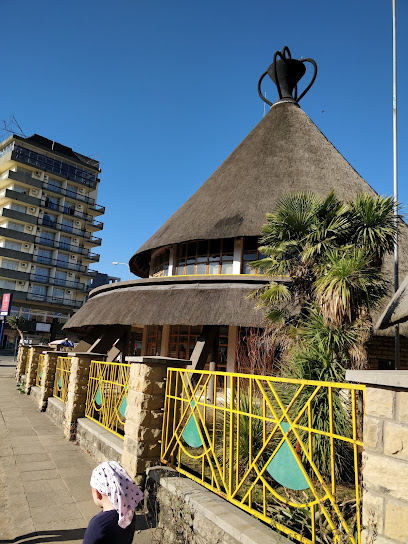
Mafika Lisiu Pass View Point
Explore the stunning vistas of Mafika Lisiu Pass View Point, a breathtaking nature preserve in Lesotho offering panoramic mountain views and tranquility.
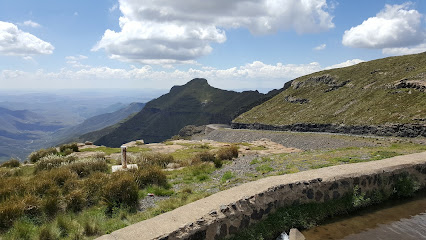
Morija Museum & Archives
Explore the vibrant heritage and culture of Lesotho at Morija Museum & Archives, a must-visit for history enthusiasts and families alike.
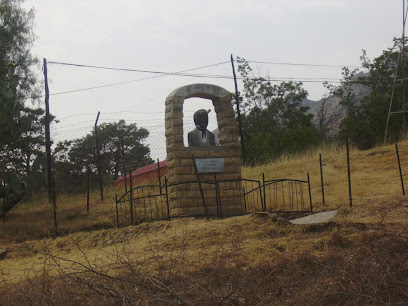
Thaba Bosiu
Discover the breathtaking beauty and historical significance of Thaba Bosiu, a majestic mountain peak in the heart of Lesotho, rich in culture and adventure.
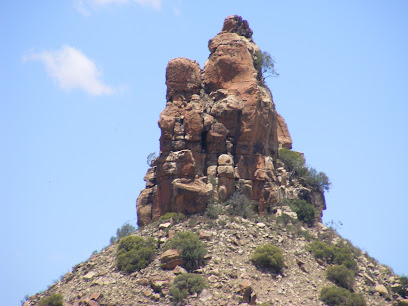
Shoeshoe Gardens
Discover the charm of Shoeshoe Gardens in Maseru, Lesotho’s inviting bed and breakfast offering comfort and local hospitality for your travels.

The Lion Rock Mountain
Discover the breathtaking views and rich culture at Lion Rock Mountain, a must-visit natural attraction in Maseru, Lesotho.
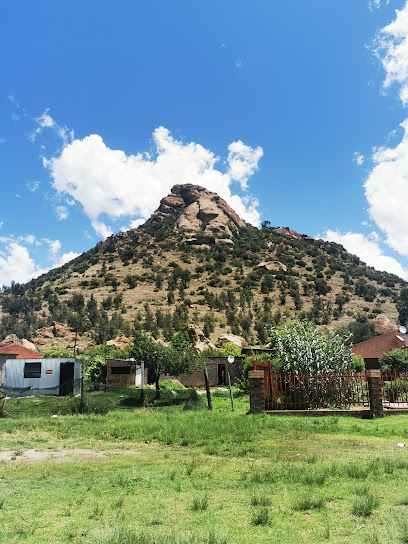
Kome Caves
Explore the Kome Caves in Mateka, Lesotho - a captivating blend of natural beauty and rich cultural heritage, perfect for adventurous travelers.
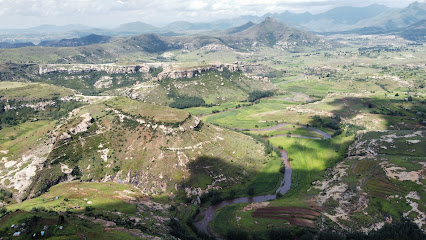
King Moshoeshoe I Royal Graves at Thaba Bosiu
Discover the rich history and cultural significance of King Moshoeshoe I Royal Graves, a must-visit landmark in the heart of Lesotho.
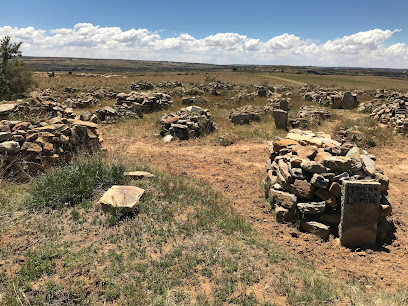
Goodnight Lodge Thaba Bosiu
Discover the serene beauty and rich culture at Goodnight Lodge Thaba Bosiu, a perfect retreat for travelers in Maseru, Lesotho.
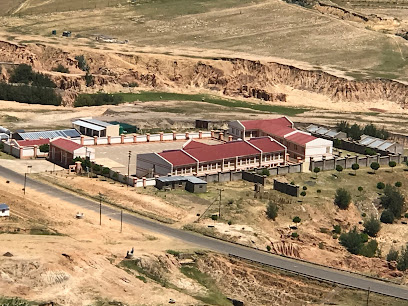
Gates of Paradise Pass
Experience the breathtaking beauty and rich history at the Gates of Paradise Pass in Lesotho, a must-visit destination for every traveler.
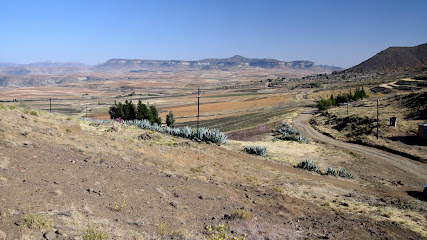
Thaba Bosigo
Discover the breathtaking Thaba Bosigo Plateau in Lesotho, where stunning landscapes meet rich cultural heritage in a perfect blend for every traveler.
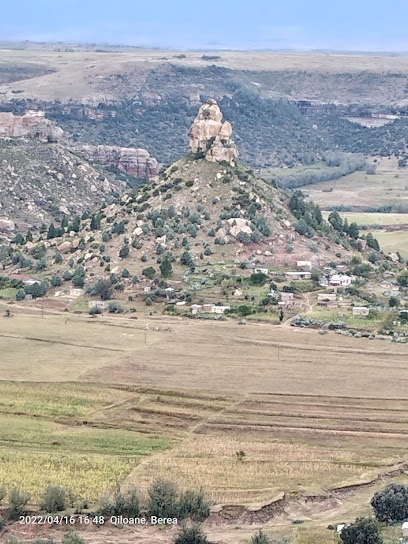
Unmissable attractions to see
Malealea Lodge, Lesotho - Pony Trekking & MTB
Experience Lesotho's authentic culture and breathtaking landscapes at Malealea Lodge, a gateway to adventure in the heart of the Mountain Kingdom.

Maliba Lodge
Experience Lesotho's beauty at Maliba Lodge: luxury chalets, outdoor adventures, and cultural immersion in the heart of Tsehlanyane National Park.
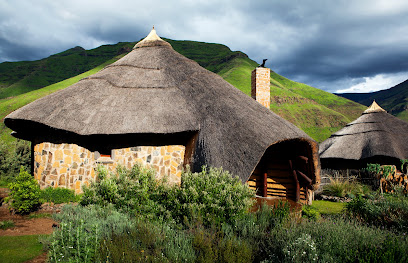
Maletsunyane Falls
Experience the awe-inspiring Maletsunyane Falls in Lesotho: a majestic waterfall, Basotho culture, and thrilling adventure in the 'Kingdom in the Sky'.
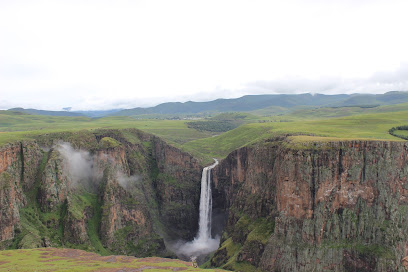
Mafika Lisiu Pass View Point
Experience Lesotho's majestic beauty from the Mafika Lisiu Pass View Point, offering panoramic vistas and a glimpse into the Mountain Kingdom's soul.
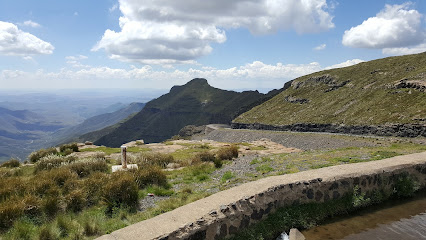
King Moshoeshoe I Royal Graves at Thaba Bosiu
Explore the royal graves of King Moshoeshoe I at Thaba Bosiu, a mountain fortress steeped in Basotho history and offering stunning panoramic views.
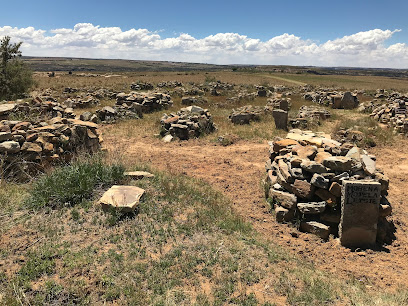
Goodnight Lodge Thaba Bosiu
Experience comfort and culture at Goodnight Lodge Thaba Bosiu, your gateway to Lesotho's rich heritage and stunning landscapes near Maseru.
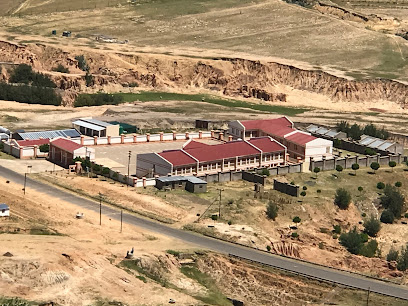
Gates of Paradise Pass
Discover breathtaking vistas and cultural richness at Lesotho's Gates of Paradise Pass, a haven for photographers, nature lovers, and adventure seekers.
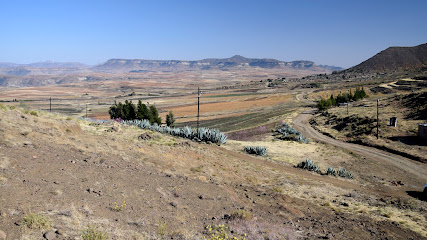
Thaba Bosigo
Explore Thaba Bosigo: The historic mountain fortress and birthplace of the Basotho nation, offering cultural insights and stunning landscapes.
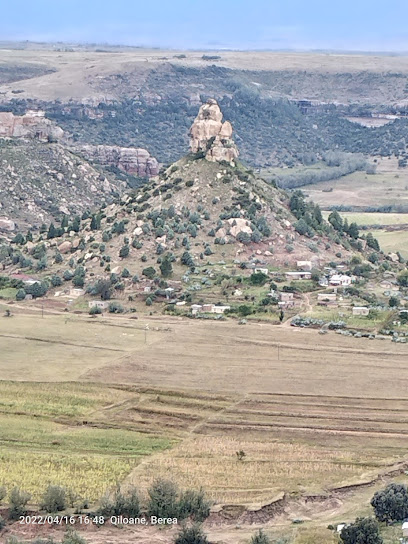
Essential places to dine
Avani Lesotho Hotel & Casino
Experience unparalleled luxury and entertainment at Avani Lesotho Hotel & Casino – your perfect getaway in Maseru.
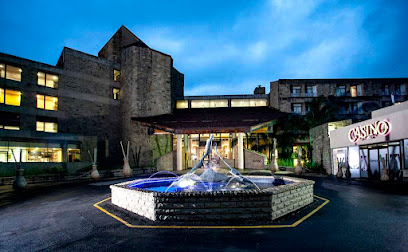
Thaba Bosiu Cultural Village
Experience the rich culture and history at Thaba Bosiu Cultural Village - a tribute to Basotho heritage and King Moshoeshoe I.
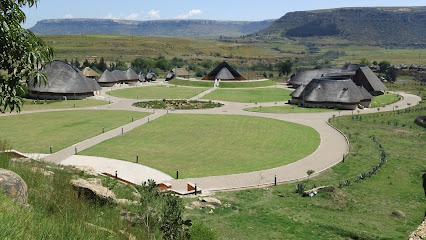
Lancer's Inn Hotel Maseru
Discover unparalleled comfort and local charm at Lancer's Inn Hotel Maseru—your gateway to experiencing the beauty of Lesotho.
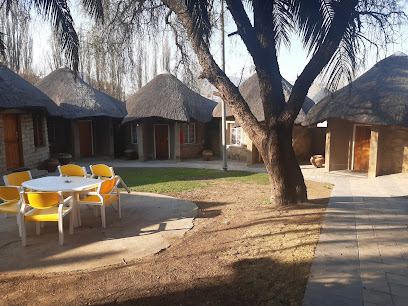
Mmelesi Lodge Thaba-Bosiu
Experience comfort and culture at Mmelesi Lodge Thaba-Bosiu - your gateway to Lesotho's stunning landscapes and rich heritage.
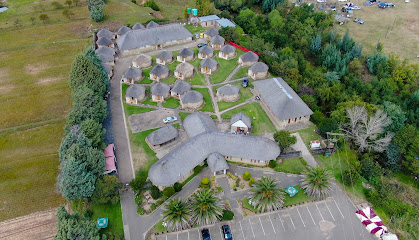
Botleng Guest House
Discover comfort and culture at Botleng Guest House in Bokatis Store, Lesotho - your ideal retreat for exploring stunning landscapes.

Piripiri Restaurant
Discover the rich flavors of Portugal at Piripiri Restaurant in Maseru – where culinary tradition meets vibrant ambiance.
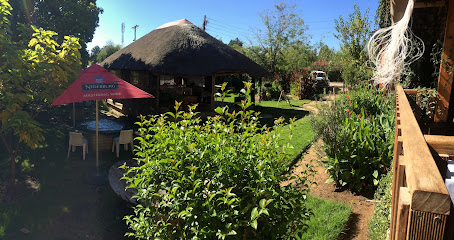
The Market
Discover a delightful fusion of local flavors and international cuisine at The Market in Maseru Mall - perfect for food lovers!
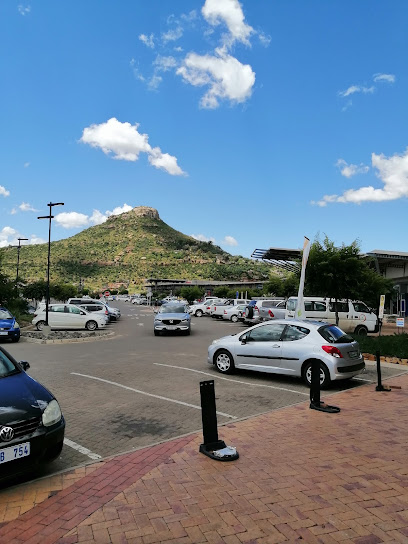
Galito's Maseru Station
Discover the irresistible taste of grilled chicken at Galito's Maseru Station – where every bite is packed with flavor and warmth.
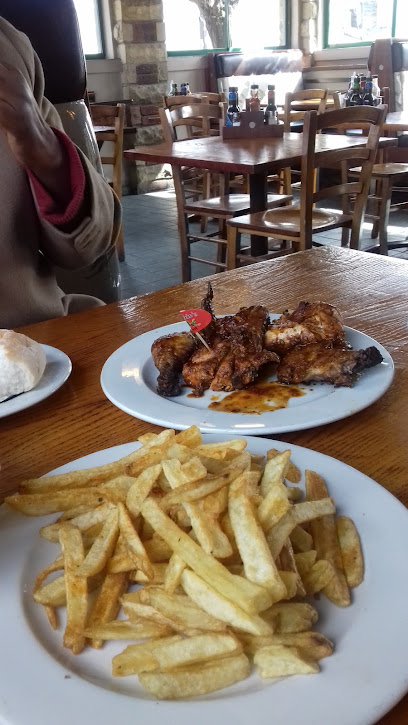
No.7 Restaurant
Experience authentic Basotho cuisine alongside international favorites at No.7 Restaurant in Maseru—where every meal tells a story.
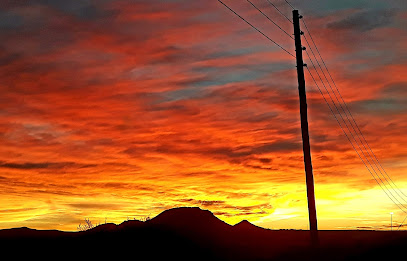
Tribute Guest House Matala
Experience comfort and local hospitality at Tribute Guest House Matala in Maseru – your gateway to exploring the beauty of Lesotho.

Basotho Hat
Explore Basotho Hat in Maseru - your gateway to authentic Lesotho crafts and souvenirs at unbeatable prices.
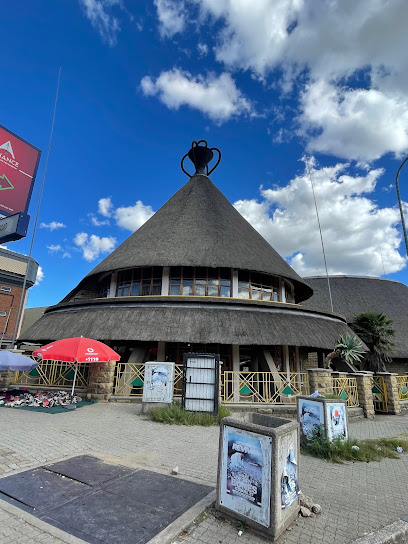
Hokahanya Inn & Conference Centre
Experience comfort and convenience at Hokahanya Inn & Conference Centre in Maseru - your perfect retreat in Lesotho's vibrant capital.
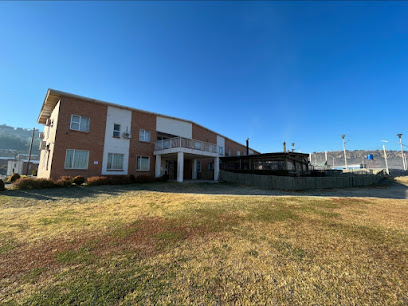
Thaba Bosiu
Explore Thaba Bosiu: A breathtaking mountain peak in Lesotho rich in history and natural beauty, perfect for adventurers and culture enthusiasts alike.
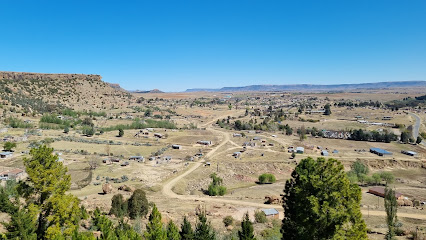
The Lion Rock Mountain
Discover the breathtaking beauty of Lion Rock Mountain in Maseru—a must-visit destination for adventurers and nature lovers alike.
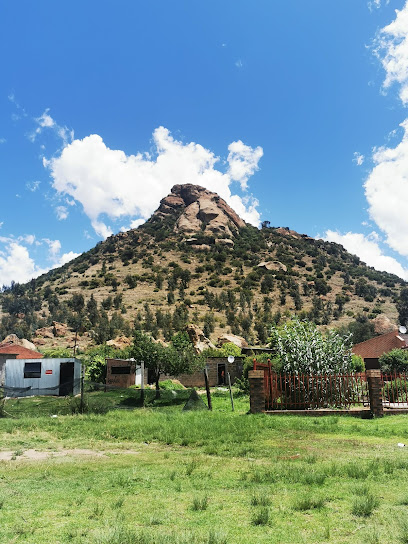
Nada
Experience authentic Basotho cuisine at Nada in Maseru - where every meal is a celebration of local flavors.
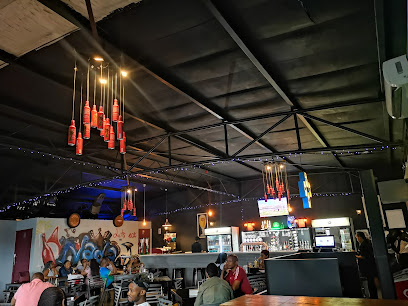
Markets, malls and hidden boutiques
Avani Lesotho Hotel & Casino
Discover a luxurious stay at Avani Lesotho Hotel & Casino, where comfort meets entertainment amidst stunning mountain views.
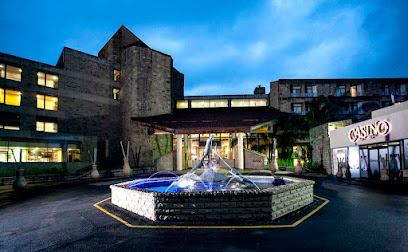
Maseru Mall
Discover shopping, dining, and entertainment at Maseru Mall, the ultimate destination for tourists in Lesotho's vibrant capital.
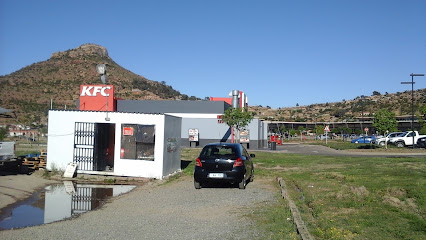
Thaba Bosiu Cultural Village
Explore the historical and cultural treasures of Thaba Bosiu Cultural Village, a vital part of Lesotho's heritage showcasing the legacy of the Basotho Nation.
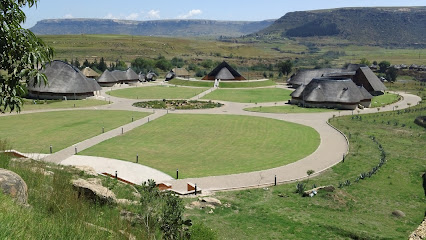
Semonkong Lodge
Explore the breathtaking landscapes and rich culture of Lesotho at Semonkong Lodge, your perfect retreat for adventure and relaxation.

Basotho Cultural Village
Discover the vibrant traditions and rich heritage of the Basotho people at the Basotho Cultural Village in South Africa.
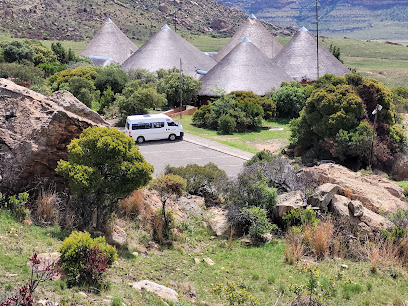
Sefika Shopping Centre
Explore the diverse shopping and dining experiences at Sefika Shopping Centre in Maseru, a vibrant hub of culture and commerce.
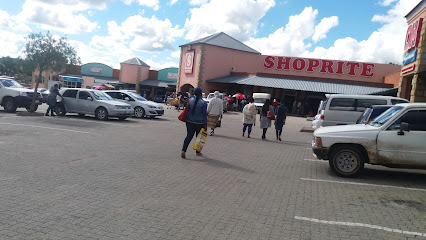
Basotho Hat
Explore the Basotho Hat in Maseru for affordable, authentic Lesotho crafts and unforgettable shopping experiences.
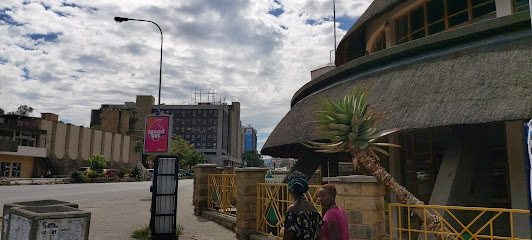
Shoprite Leribe
Explore Shoprite Leribe in Butha Buthe for a delightful shopping experience featuring local flavors and essential goods in a vibrant atmosphere.
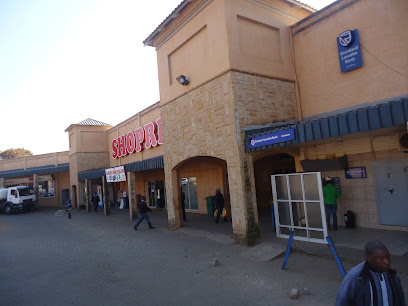
Thaba Bosiu
Discover Thaba Bosiu, a historic mountain peak in Lesotho, offering stunning views, rich heritage, and unforgettable hiking adventures.
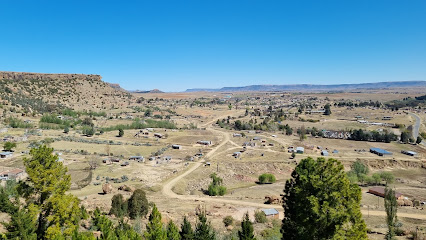
The Lion Rock Mountain
Discover the breathtaking views and cultural heritage at Lion Rock Mountain, a must-visit tourist attraction in Maseru, Lesotho.
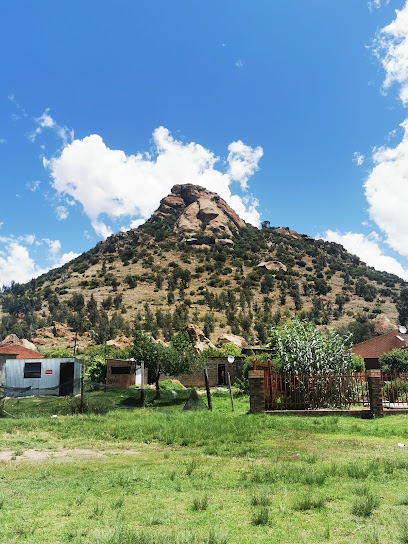
Kome Caves
Explore the enchanting Kome Caves in Mateka, a captivating destination blending natural beauty with rich historical significance.
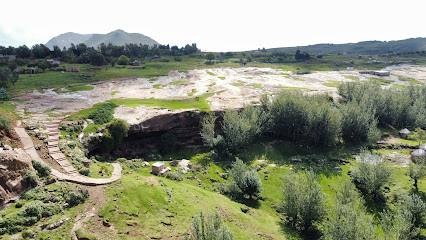
Ha Kome Caves
Uncover the beauty of nature and history at Ha Kome Caves in Mateka, a must-visit destination for adventurous tourists seeking unique experiences.
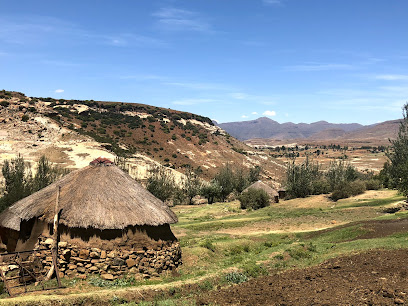
Thaba Bosigo
Discover the breathtaking beauty of Thaba Bosigo Plateau, a serene escape in Lesotho perfect for nature lovers and adventurers.
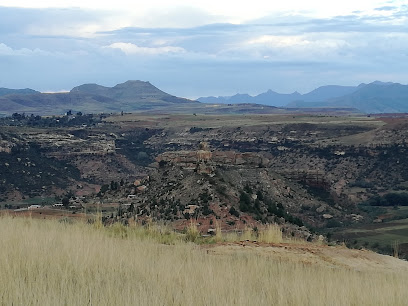
Lifefo Mall
Discover the vibrant Lifefo Mall in Maseru, a shopping haven with diverse stores, local cuisine, and entertainment for every traveler.
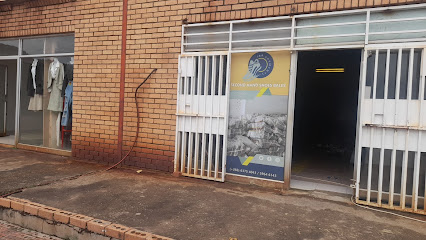
Maqalika Dam
Explore the serene Maqalika Dam in Maseru, a perfect retreat for rowing enthusiasts and nature lovers seeking tranquility and stunning landscapes.
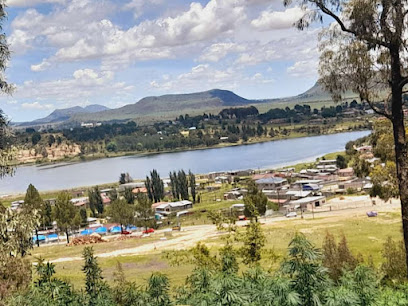
Essential bars & hidden hideouts
Avani Lesotho Hotel & Casino
Discover the perfect blend of luxury and entertainment at Avani Lesotho Hotel & Casino in Maseru, where comfort meets excitement amidst stunning views.
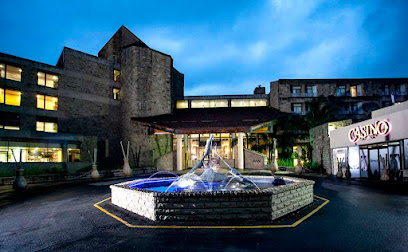
Thaba Bosiu Cultural Village
Explore the historic Thaba Bosiu Cultural Village, a stunning testament to Basotho culture and heritage, nestled in the breathtaking landscapes of Lesotho.
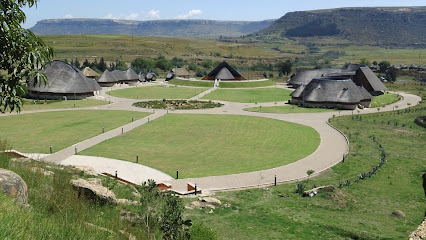
Lancer's Inn Hotel Maseru
Discover the elegance of Lancer's Inn Hotel in Maseru, Lesotho, where comfort meets local culture.
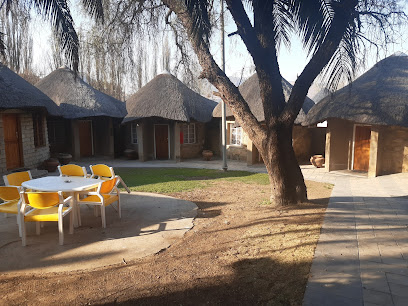
Basotho Hat
Explore authentic Basotho crafts at the Basotho Hat in Maseru, where cultural heritage meets vibrant shopping for unforgettable souvenirs.
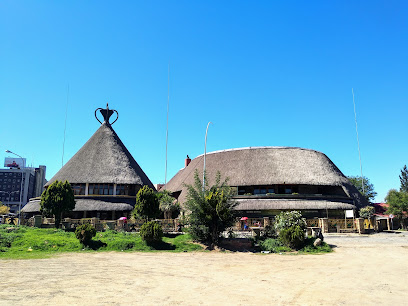
Thaba Bosiu
Experience the breathtaking beauty and rich history of Thaba Bosiu, a majestic mountain peak in Lesotho that embodies the spirit of the Basotho people.
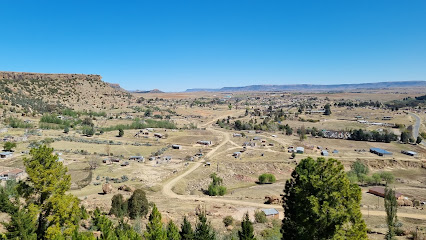
The Lion Rock Mountain
Discover the breathtaking views and rich cultural heritage at The Lion Rock Mountain, a must-visit tourist attraction in Maseru, Lesotho.
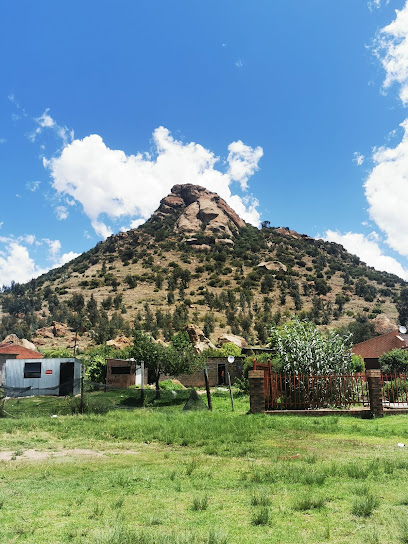
Kome Caves
Discover the breathtaking beauty and ancient history of Kome Caves in Mateka, a must-visit tourist attraction for nature and culture lovers alike.
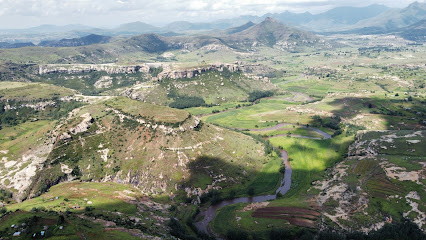
King Moshoeshoe I Royal Graves at Thaba Bosiu
Discover the historical significance of the King Moshoeshoe I Royal Graves, a landmark that embodies the rich heritage of Lesotho amidst stunning landscapes.
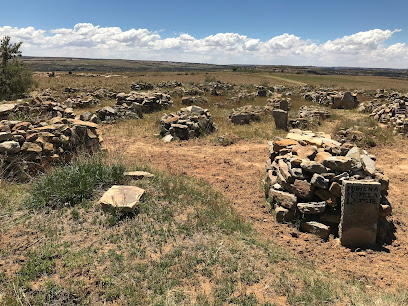
Goodnight Lodge Thaba Bosiu
Discover serenity and cultural richness at Goodnight Lodge Thaba Bosiu, a tranquil retreat in the heart of Maseru, Lesotho.
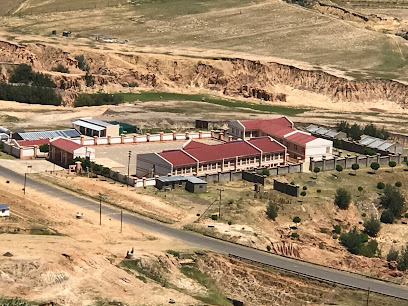
N'Jays Restaurant
Savor the authentic flavors of Lesotho at N'Jays Restaurant, a delightful culinary haven in Maseru, perfect for tourists and locals alike.
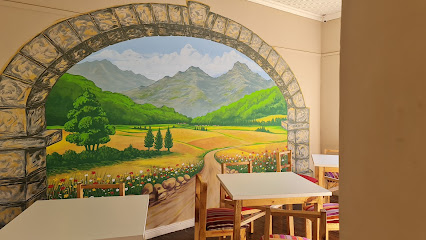
Thaba Bosigo
Explore the breathtaking beauty and rich cultural heritage of Thaba Bosigo, a stunning plateau in Lesotho offering endless adventure.
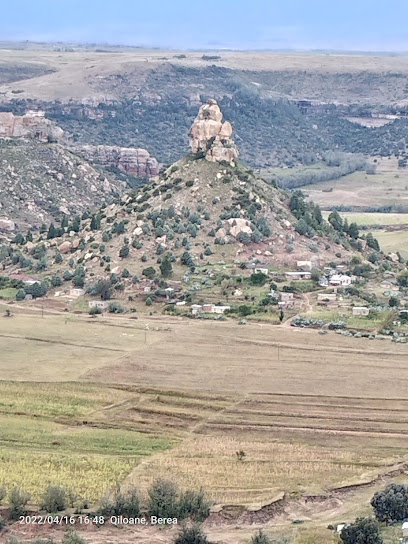
Cafe Mojo
Discover the flavors of Morija at Café Mojo, where local cuisine meets a cozy atmosphere in a charming setting.
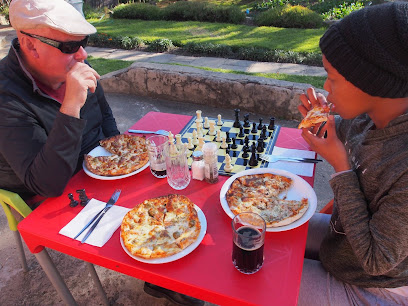
Local Phrases about Thaba-Bosiu National Monument
-
- HelloLumela
[loo-MEH-lah] - GoodbyeTsamaea hantle
[tsah-mah-eh HAHN-tleh] - YesEa
[eh-ah] - NoChe
[cheh] - Please/You're welcomeKa khotso
[kah khoh-tsoh] - Thank youKea leboha
[keh-ah leh-BOH-hah] - Excuse me/SorryTlamehla
[tla-MEH-lah] - How are you?U phela joang?
[oo PEH-lah jwahng] - Fine. And you?Ke kena hantle. Le wena?
[keh KEH-nah HAHN-tleh. leh WEH-nah] - Do you speak English?U bua senyesemane?
[oo BOO-ah seh-nyeh-seh-MAH-neh] - I don't understandHa ke utlwa
[hah keh oot-lwah]
- HelloLumela
-
- I'd like to see the menu, pleaseKe hloka ho fumana menyu, hape
[keh hloh-kah hoh foo-MAH-nah MEH-nyoo, hah-peh] - I don't eat meatHa ke ja nyama
[hah keh jah nyah-mah] - Cheers!Tsoha!
[tsoh-hah] - I would like to pay, pleaseKe batla ho tlatsa, hape
[keh bah-tlah hoh tlah-tsa, hah-peh]
- I'd like to see the menu, pleaseKe hloka ho fumana menyu, hape
-
- Help!Bolaa!
[boh-LAH] - Go away!Ea ho tsamaea!
[eh-ah hoh tsah-mah-eh] - Call the Police!Bula boliba!
[boo-lah boh-lee-bah] - Call a doctor!Bula ngaka!
[boo-lah ngah-kah] - I'm lostKe ile mona
[keh EE-leh moh-nah] - I'm illKe hloka tlhokomela
[keh hloh-kah thloh-koh-meh-lah]
- Help!Bolaa!
-
- I'd like to buy...Ke hloka ho rekela...
[keh hloh-kah hoh reh-keh-lah] - I'm just lookingKe sebetsa
[keh seh-beht-sah] - How much is it?Ke bokae?
[keh boh-kah-eh] - That's too expensiveEna e tsohle kapa
[EH-nah eh tsoh-leh kah-pah] - Can you lower the price?Na u nkolotsoe nako?
[nah oo nko-loh-tsoh-eh nah-koh]
- I'd like to buy...Ke hloka ho rekela...
-
- What time is it?Ke kae nako?
[keh kah-eh nah-koh] - It's one o'clockKe nako ea boholo
[keh nah-koh eh-ah boh-hoh-loh] - Half past (10)Boraro ba thapelo
[boh-rah-roh bah thah-peh-loh] - MorningMetsing
[meh-tsing] - AfternoonBosiu
[boh-see-oo] - EveningSenyehla
[seh-nyeh-lah] - YesterdayNaha
[nah-hah] - TodayNamuhla
[nah-moo-hlah] - TomorrowBohlokong
[boh-hloh-kohng] - 1Eholo
[eh-hoh-loh] - 2Bobeli
[boh-beh-lee] - 3Boraro
[boh-rah-roh] - 4Boraro boholo
[boh-rah-roh boh-hoh-loh] - 5Boraro bong
[boh-rah-roh bong] - 6Boraro bong jwalo
[boh-rah-roh bong jwah-loh] - 7Boraro bong boholo
[boh-rah-roh bong boh-hoh-loh] - 8Boraro bong bong
[boh-rah-roh bong bong] - 9Boraro bong bong leholo
[boh-rah-roh bong bong leh-hoh-loh] - 10Boraro bong bong boholo
[boh-rah-roh bong bong boh-hoh-loh]
- What time is it?Ke kae nako?
-
- Where's a/the...?Kae...?
[kah-eh] - What's the address?Ho kae aterese?
[hoh kah-eh ah-teh-reh-seh] - Can you show me (on the map)?Na u hloka ho kena (ka mapo)?
[nah oo hloh-kah hoh KEH-nah (kah mah-poh)] - When's the next (bus)?Ke kae fela (bus)?
[keh kah-eh feh-lah (boos)] - A ticket (to ....)Litshefere (ho ....)
[lit-she-feh-reh (hoh)]
- Where's a/the...?Kae...?
History of Thaba-Bosiu National Monument
-
Thaba-Bosiu, meaning 'Mountain at Night', was established in 1824 by King Moshoeshoe I. The plateau, located about 24 kilometers east of the present-day capital Maseru, was chosen for its strategic defensive position. The flat-topped mountain provided a natural fortress that was difficult for enemies to penetrate, making it a safe haven for the Basotho people during times of conflict.
-
Throughout the 19th century, Thaba-Bosiu played a crucial role in the Basotho Wars. The stronghold was a focal point in the defense against both Zulu raids and Boer invasions. Under the leadership of King Moshoeshoe I, the Basotho successfully repelled multiple attacks, including the notable Battle of Thaba-Bosiu in 1858, where the Boers were decisively defeated.
-
Thaba-Bosiu was not only a military stronghold but also a center for diplomacy and governance. King Moshoeshoe I used the mountain to negotiate with colonial powers and other African leaders. His diplomatic skills were instrumental in securing British protection for Lesotho in 1868, which helped preserve the kingdom's sovereignty during a turbulent period in Southern African history.
-
Thaba-Bosiu holds immense cultural significance for the Basotho people. It is considered the birthplace of the Basotho nation and a symbol of their endurance and unity. Traditional ceremonies and rituals are still conducted at the site, and it serves as a pilgrimage destination for many Basotho, who come to pay their respects to their ancestors and to King Moshoeshoe I.
-
Today, Thaba-Bosiu is a protected national monument and a popular tourist destination. Efforts have been made to preserve the historical structures and natural environment of the plateau. Visitors can explore the remains of King Moshoeshoe I's dwellings, ancient fortifications, and various rock art sites that provide a glimpse into the past. The Thaba-Bosiu Cultural Village offers educational tours and cultural performances, enriching the visitor experience.
Thaba-Bosiu National Monument Essentials
-
Thaba-Bosiu National Monument is located about 24 kilometers east of Maseru, the capital city of Lesotho. The nearest international airport is Moshoeshoe I International Airport, which is approximately 30 kilometers away. From Maseru, you can take a taxi or rent a car to reach Thaba-Bosiu. The journey typically takes around 30 to 45 minutes by road. Public minibuses (known locally as kombis) also operate from Maseru to Thaba-Bosiu.
-
Within Thaba-Bosiu, the primary mode of transportation is by foot, as the area is relatively small and most attractions are within walking distance. For longer trips, local taxis are available. Renting a car can be a convenient option if you plan to explore the surrounding areas. Public minibuses (kombis) are an affordable option for traveling to and from Maseru.
-
The official currency in Lesotho is the Lesotho Loti (LSL), which is pegged to the South African Rand (ZAR). Credit cards are accepted in some hotels, restaurants, and shops in Maseru, but it is advisable to carry cash, especially when visiting rural areas and attractions like Thaba-Bosiu. ATMs are available in Maseru, so it is wise to withdraw sufficient cash before traveling to ensure you have enough funds.
-
Thaba-Bosiu is generally a safe destination for tourists. However, it is advisable to take standard precautions. Avoid walking alone at night in unfamiliar areas and keep an eye on your belongings in crowded places. While Thaba-Bosiu itself is safe, some areas in Maseru have higher crime rates, particularly targeting tourists. Be cautious in neighborhoods such as Thetsane and Motimposo. Always stay vigilant and aware of your surroundings.
-
In case of emergency, dial 112 for immediate assistance. The local police station and medical facilities are available in Maseru, which is a short drive from Thaba-Bosiu. It is recommended to have travel insurance that covers medical emergencies. For minor health issues, there are pharmacies in Maseru where you can purchase over-the-counter medications.
-
Fashion: Do dress modestly, especially when visiting cultural and historical sites. Avoid wearing revealing clothing. Religion: Do respect local customs and traditions. Remove your hat and speak softly when visiting sacred sites. Public Transport: Do be respectful and give up your seat to elderly passengers. Don't eat or drink on public transport. Greetings: Do greet people with a firm handshake and maintain eye contact. A slight nod of the head is also a sign of respect. Eating & Drinking: Do try local delicacies and accept food offerings graciously. Don't refuse hospitality, as it is considered impolite.
-
To experience Thaba-Bosiu like a local, engage with the guides and locals who can share in-depth stories about the area's rich history and cultural significance. Visit the Thaba-Bosiu Cultural Village to learn about the traditional Basotho way of life. Don't miss the chance to hike to the top of the plateau for panoramic views of the surrounding landscape. For a unique experience, try the local cuisine at nearby eateries and sample traditional dishes such as 'papa' (maize porridge) and 'moroho' (vegetable stew).
Trending Landmarks in Thaba-Bosiu National Monument
-
Avani Lesotho Hotel & Casino
-
Thaba Bosiu Cultural Village
-
Botleng Guest House
-
Basotho Hat
-
Mafika Lisiu Pass View Point
-
Morija Museum & Archives
-
Thaba Bosiu
-
Shoeshoe Gardens
-
The Lion Rock Mountain
-
Kome Caves
-
King Moshoeshoe I Royal Graves at Thaba Bosiu
-
Goodnight Lodge Thaba Bosiu
-
Gates of Paradise Pass
-
Thaba Bosigo
Nearby Cities to Thaba-Bosiu National Monument
-
Things To Do in Teyateyaneng
-
Things To Do in Leribe
-
Things To Do in Mafeteng
-
Things To Do in Butha-Buthe
-
Things To Do in Mohale's Hoek
-
Things To Do in Thaba-Tseka
-
Things To Do in Quthing
-
Things To Do in Mokhotlong
-
Things To Do in Bloemfontein
-
Things To Do in Kimberley
-
Things To Do in Durban
-
Things To Do in Johannesburg
-
Things To Do in Pretoria
-
Things To Do in East London
-
Things To Do in Malkerns






